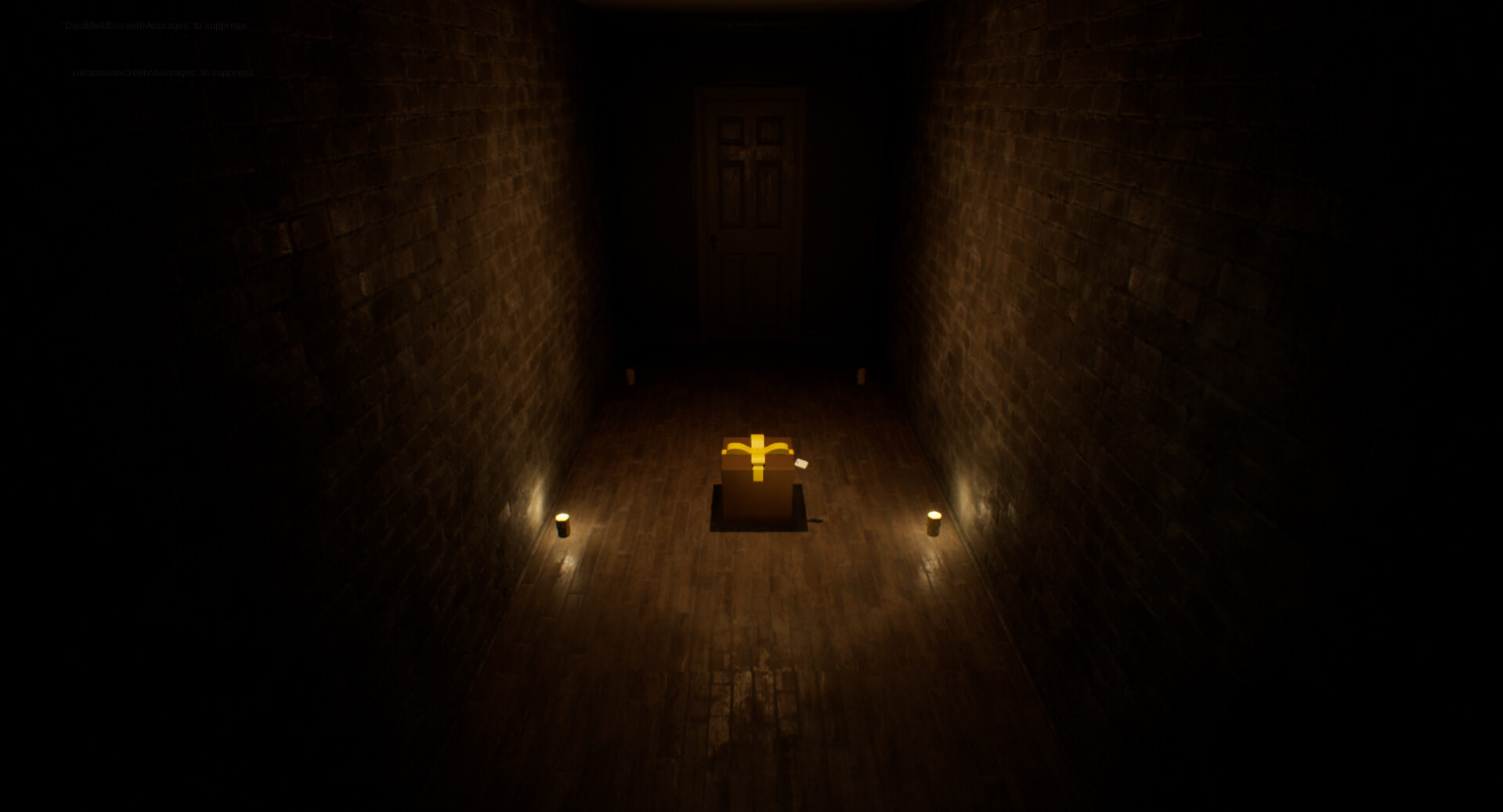Horror developers: please let P.T. have its eternal rest
Perpetually tired.

Much like Dracula, horror game trends are repeatedly killed off only to rise from their graves again and again. Zombies, ghosts, novelty jump scares, cooperative and competitive multiplayer—there's no discarded subgenre corpse that can't be reanimated by someone else.
"P.T.-likes"—games resembling Konami's beloved Kojima-helmed PlayStation 4 teaser, a demo that has existed as an unliving corpse for longer than it was ever alive—have been tirelessly stalking PC gamers for years. Steam is littered with more games birthed from this unholy mould than anyone could ever play. A scarily long list of results manifests after clicking the "first person" tag in the horror section, and so many of their screenshots show another torchlit walk around some vaguely realistic hallway while one weird monster casts an ominous shadow across an otherwise mundane room. They're not all aping P.T., but far too many are. Honestly, the scariest thing about most of these games is how similar they are to each other, and to a PlayStation 4 demo released eight years ago.
Konami's Playable Teaser needs to be laid to rest.
P.T. didn't invent or really even reinvent first-person horror—Outlast, Amnesia, and White Day all independently debuted years before P.T.'s Lisa stood at the end of what looked like an ordinary corridor in an ordinary house. You can even trace the genre as far back as 1981, to ZX Spectrum classic 3D Monster Maze. But what P.T. did do was offer aspiring horror developers of all sizes a strong framework they had a realistic shot of replicating on at least some superficial level. Developers seem to hope they'll retain some of the original's dark magic—and player attention—purely through imitation.
I get why this particular horror subgenre is so oversaturated. In theory it's the perfect foundation for a budget-conscious game: most potential customers already understand "P.T.-like" means "short and visually quite ordinary" before they've even clicked on the trailer. From the reductive point of view of someone trying to find the right "ingredients" to use in their own first-person horror game, P.T. was one small area made out of some easily referenced everyday objects with no visible main character to animate outside of a few very specific instances.
Most of the horror stemmed from lighting that small area in a different way, swapping out a few key textures, or making the teaser's only other major character model stand somewhere and look in the player's direction. Mechanically there's not a great deal to worry about either—no ammo to count, no health bar to keep track of, no inventory to manage. As long as the player can walk around and look at things, then technically speaking whatever's created accurately reflects the much-missed P.T. experience.

But in practice so very few games of this type manage to come close to, never mind escape, their famous influence's icy grip. Some of them were never meant to be good in the first place; just a few store-bought assets thrown together in a cynical meme-hopping bandwagon sort of way. Some of them fundamentally misunderstand what made the demo they were hoping to imitate so frightening: Layers of Fear seems to think P.T. was a game about opening drawers in the dark, springing scripted jump scares on its players, and reading many, many, notes. FM promises little more than darkness and corridors. Some sincerely try their best only to fail due to outside factors—a lack of time or money, a publisher failing to keep their promises. But almost all of them fail to step out of P.T.'s shadow because they're chasing an impossible target.
Keep up to date with the most important stories and the best deals, as picked by the PC Gamer team.
They don't—they can't—capture the one thing that actually made the chilling teaser they're based on so special: its inexhaustible supply of unrealised potential.
Yes, P.T. was (and still is) an unforgettable combination of nerve-destroying terror and obtuse puzzle solving. Its one rule was to never, ever look at the bloodied monster violently shaking right behind you and breathing heavily in your ear. The primal instinct that rule tapped into was more intense than just about anything else horror has ever produced. And the sparse fragments of a story scattered throughout its changeable corridor were tantalising: they formed a disturbing tale of love, violence, and loss.
But as great as all of that was, that's not why P.T. has lingered at the collective edges of horror gaming's consciousness for all these years. P.T. is an untouchable legend, a game that for all intents and purposes no longer exists. P.T. is anything and everything someone wants it to be. It is the promise of a long-awaited Silent Hill revival created by a dream team able to take the series in an exciting new (and surely—please—Pyramid Head-free) direction.
No studio can ever compete with that, because what "that" is doesn't actually exist in any meaningful manner. At best a developer's rival is a delisted playable wisp of a teaser released an entire console generation ago, more a short moment in time than a game. They're squaring off against the dream of a perfect Silent Hill that will never exist, and yet these photorealistic horror games with one weird trick™ still keep coming.
Typing "Backrooms" into Steam's search bar unleashes an avalanche of games hoping to scare me with wallpaper and open doorways. The recently released Life after Death invites me to wander down an ordinary hallway, but now in red. The in-development Hellseed is trying to turn my head with another dimly-lit building to stare at photos in and scares caused by vaguely human monsters that are either too distant or too close. However they turn out, they're no P.T.
So please horror developers, even if only for your own sake, let P.T. rest—after all, you can't kill something that never lived.

When baby Kerry was brought home from the hospital her hand was placed on the space bar of the family Atari 400, a small act of parental nerdery that has snowballed into a lifelong passion for gaming and the sort of freelance job her school careers advisor told her she couldn't do. She's now PC Gamer's word game expert, taking on the daily Wordle puzzle to give readers a hint each and every day. Her Wordle streak is truly mighty.
Somehow Kerry managed to get away with writing regular features on old Japanese PC games, telling today's PC gamers about some of the most fascinating and influential games of the '80s and '90s.

